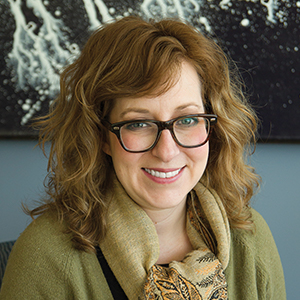Pointers for an industry career: part 2
This is the second article from a three-part series of interviews with Kenneth I. Maynard of Takeda Pharmaceuticals International Inc. about what it takes to launch and propel a career in the pharmaceutical industry. The first piece appeared in the August issue of ASBMB Today and gave tips on how to begin looking for industry positions.

Maynard previously worked for Sanofi, Aventis Pharmaceuticals, Massachusetts General Hospital and Harvard Medical School. He is a member of the National Institutes of Health Common Fund’s External Scientific Panel for the Broadening Experiences in Scientific Training program. This Q&A has been edited for length, style and clarity.
How important are internships when it comes to finding a job in industry?
Internships are not critical to finding a job in the pharmaceutical industry, but they do provide advantages for the applicant. As with any internship experience, working in an environment where you may eventually want to work could provide you with important and relevant experience to help decide whether this is the type of job you really are seeking for the future.
An internship also provides real-world experience that is very different from working in academia. Despite having many of the same basic skills in terms of technical excellence, more emphasis is put on process, timelines and working in teams. One potential significant advantage is that in a few cases, an internship potentially could lead to a full-time position in the same company, if there happens to be an opening for a full-time employee and there is strong interest on the part of both the company/employer and the intern/potential employee. It’s the perfect fit. In rare situations, a company may even create a position for exceptional interns.
Should a candidate wait until he/she publishes original work before applying to industry?
Depending on the position being considered, publications can provide a competitive advantage. First, publications can indicate that the candidate is an expert in a specific area of knowledge or with certain scientific techniques. Second, publications can illustrate to the hiring manager that the candidate can prepare professionally written documentation of his or her scientific work, which is important for regular scientific reports. Scientific reports, which include full documentation of experiments, their results and interpretation, are important documents in the pharmaceutical industry.
However, for some entry-level bench positions, it is not necessary to have publications as long as you can provide evidence or strong references, to convince the company that you have the specific skills it is seeking. Depending on the position and the candidate, it is understood that publishing your scientific work may not have been possible if you were working formerly in a pharmaceutical company that discourages publication of internal scientific work in order to protect intellectual property. In today’s academic climate, it is even possible that a principal investigator or an academic institution may have suspended publication of academic work pending a patent application. With this in mind, patents carry as much weight for a position in the pharmaceutical industry as publications in international, peer-reviewed journals.
Is it worth doing a postdoctoral fellowship before applying to industry positions?
The answer is, “It depends.” It depends on what type of career you are seeking in the pharmaceutical industry.
If you are seeking to enter the pharmaceutical industry at the level of a group leader, principal scientist or higher, with visions of being upwardly mobile, then it is to your advantage to have an academic postdoctoral fellowship experience or, even better, apply after having achieved the position of an assistant professor. The postdoctoral fellowship is typically a period where the fellow is developing his or her own area of scientific interest and honing research skills. A fellow may develop a novel set of investigative questions for grant proposals and even get these funded. This process shows to potential pharmaceutical industry employers that the candidate has credibility within his or her scientific field. The higher the level at which you wish to enter a company, the higher along the academic track you should be to transition into industry.
However, if you do not wish to have managerial responsibilities and wish to stay at the bench level, perhaps performing routine assays, then there is no need to perform an academic postdoctoral fellowship if the skills you already possess are demonstrable. In fact, there are positions at the B.S./M.S. level that do not require having an academic postdoctoral experience. However, note that it can be challenging, though not impossible, to move up the ladder over time from this point of entry into the pharmaceutical industry.
Enjoy reading ASBMB Today?
Become a member to receive the print edition four times a year and the digital edition monthly.
Learn moreFeatured jobs
from the ASBMB career center
Get the latest from ASBMB Today
Enter your email address, and we’ll send you a weekly email with recent articles, interviews and more.
Latest in Careers
Careers highlights or most popular articles

Defining JNKs: Targets for drug discovery
Roger Davis will receive the Bert and Natalie Vallee Award in Biomedical Science at the ASBMB Annual Meeting, March 7–10, just outside of Washington, D.C.

Upcoming opportunities
No matter where you are in your career and what future path you aspire to, everyone needs leadership skills. Join ASBMB for practical strategies for building and practicing leadership skills.

Close out ASBMB 2026 with a bang
The closing reception of the 2026 ASBMB Annual Meeting will be held at the Torpedo Factory Art Center in Alexandra, Virginia.

Redefining lipid biology from droplets to ferroptosis
James Olzmann will receive the ASBMB Avanti Award in Lipids at the ASBMB Annual Meeting, March 7–10, just outside of Washington, D.C.

Creating change in biochemistry education
Pamela Mertz will receive the ASBMB William C. Rose Award for Exemplary Contributions to Education at the ASBMB Annual Meeting, March 7-10 in Washington, D.C.

Trainee mentorship as immortality
Suzanne Barbour will receive the ASBMB Sustained Leadership Award at the ASBMB Annual Meeting, March 7-10 in Washington, D.C.

